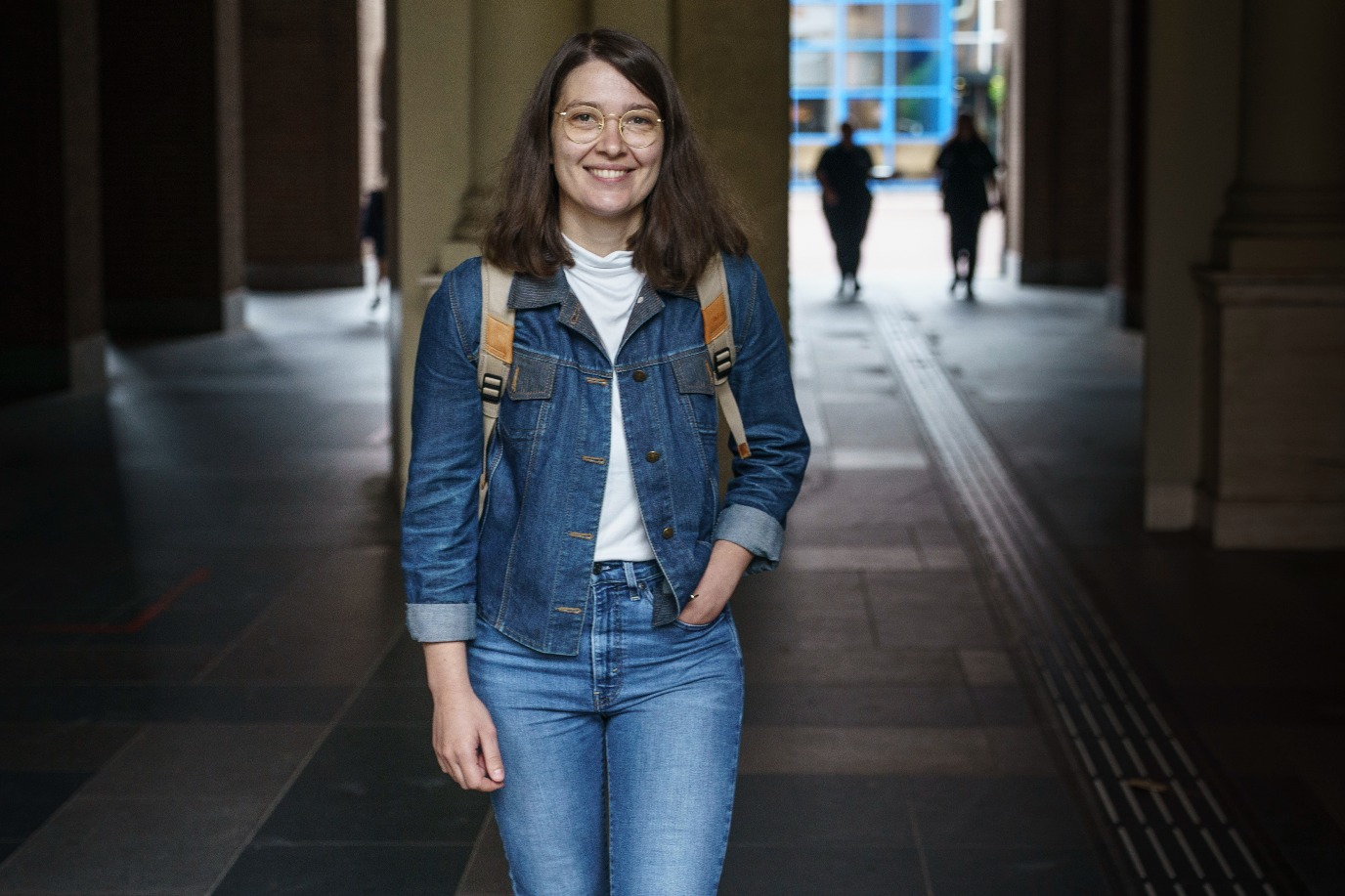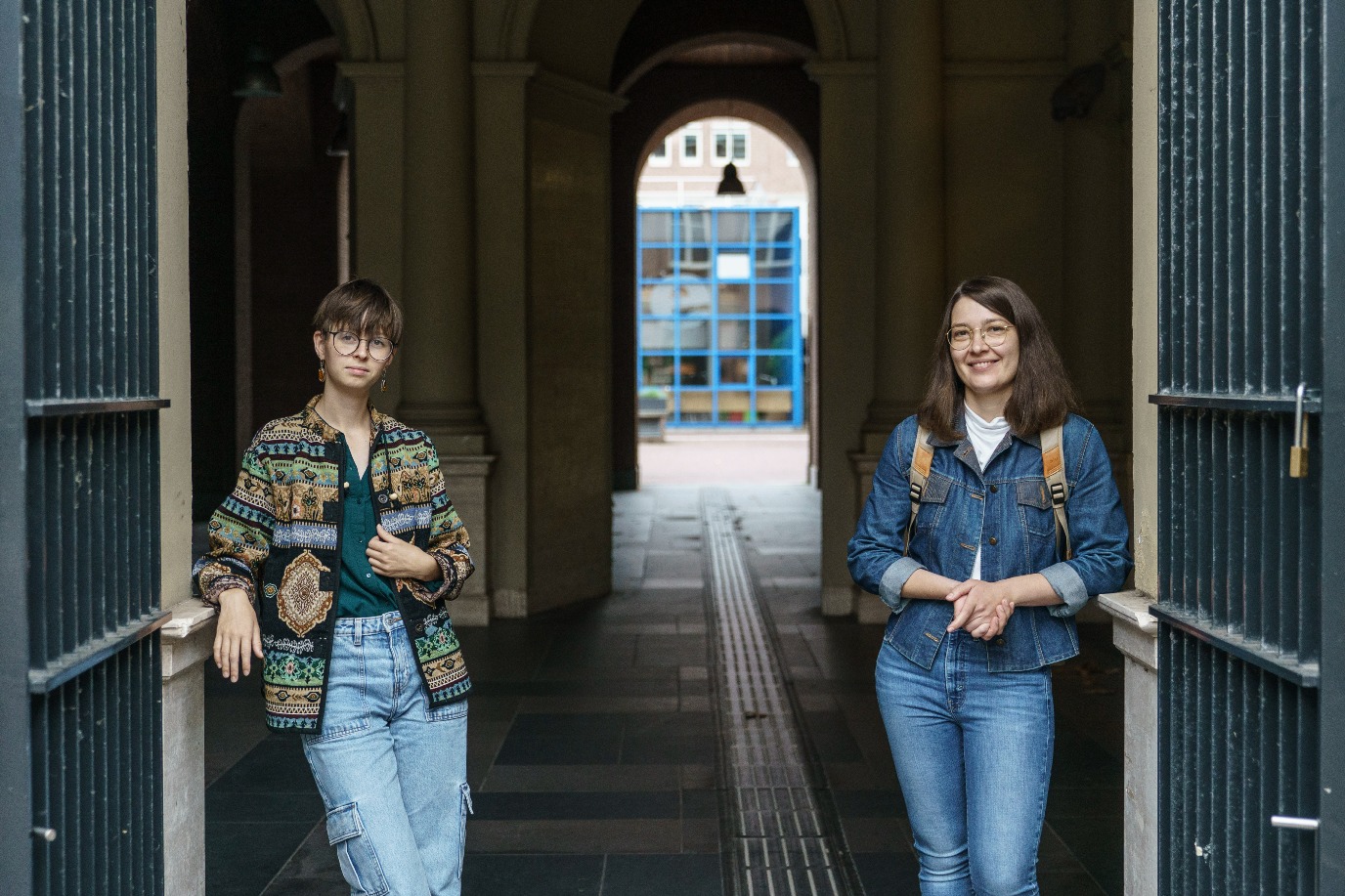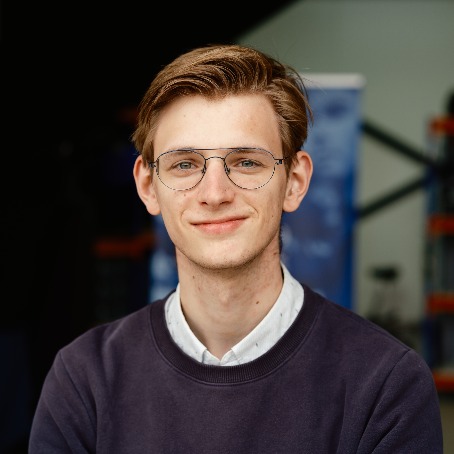Returning history to the community
Much has been said and written about the Groningen earthquake problem. But this history has never been systematically and structurally investigated. Until now. University lecturer Yuliya Hilevich works as a project advisor and internship supervisor for the project "Eyewitnesses to Gas Extraction," which revolves entirely around the oral testimonies of those involved.
Text: Lieke van den Krommenacker / Photos: Reyer Boxem
'The tiles were literally falling off the toilet wall.' 'Our safety reports got lost in the bureaucratic mess, so I had to call them back myself.' 'There were different people at the table each time.' 'I can imagine a lot of people thinking: you know, I'm quitting.'
Just a few sentences from interviews with victims from the Groningen earthquake zone. Personal sentences with great, transcendent power. 'The feeling of injustice and not being heard resonates in them,' says Amber Hannah Jansen (23). Damage to your home is one thing, but so many victims also feel dismissed as human beings.

Hundred Stories
Jansen, a master's student in History (track: History and Heritage Consultancy), is one of the interns representing the Faculty of Arts involved in the project 'Eyewitnesses to Gas Extraction' [see italic text]. The goal is to record the stories of at least one hundred people involved over a two-year period. The guiding principle is the oral history method, a way of recording history through oral tradition.
'Oral history is collecting sources in a different way than is often used in historical research,' explains university lecturer and project advisor Yuliya Hilevich. The focus is not on written sources from long ago, but on the vivid stories of people who experienced the events themselves and can recount them in the here and now. 'This can benefit not only those involved today, but also future generations.'
Ethical Codes
Due to her extensive expertise in oral history, Hilevych is responsible not only for mentoring young researchers like Jansen, but also for developing the interview guidelines and the project's ethical aspects. 'We're essentially asking people about their life stories, in this case in relation to and within the context of the earthquake. Because the interviews are very personal and cover major life events, we have to adhere to certain ethical codes. So the first thing we had to do was obtain permission from the participants.'
Young researcher and Master's student in History (track: Un/Sustainable Societies) Jurjen Abbes (23) was also involved in this initial phase. 'I was involved in developing the questions. I also looked at how the interviewers could ask the right questions to elicit the themes we wanted to discuss.'
Debilitating
Jansen cites injustice, a lonely struggle, unconscious emotional harm, and bureaucracy; topics inextricably linked to the gas extraction issue, but which, in the experience of those involved, often receive insufficient attention. 'The interviews clearly demonstrate how debilitating this has been for people,' says Jansen.
She has now completed approximately fifty interviews, conducted by five journalists specially trained for the project. The interviews can last up to three hours and—with the exception of a few short (toilet) breaks—are available for everyone to watch in their entirety on the project website and the Groningen Archives website.
Jansen has analyzed over twenty of them so far, examining which information from the various interviews fit together substantively. This resulted in what Jansen calls 'meaningful clusters': passages or sentences that, overall, touched on the same themes.

Exclusion
The added value of recording history in this way, Hilevych argues, is that the lived stories of "ordinary" people become part of history. 'We know in our field that the sources that are usually preserved also exclude many people. For example, in the archives of the 1950s, when the oral history method was developed, there's a lot to be found about wealthy people who could write. Much less has been preserved about people from other backgrounds.'
This approach thus gives a voice to people and communities who have fallen through the cracks in formal history books and, in this specific case, to those who are often missing from everything that has already been said and written about the earthquake problem. 'This way, we can give something back to the interviewees themselves, but also to the rest of the Netherlands,' says Hilevych. 'People can now truly understand what happened.'
Vulnerable
She emphasizes the importance of the university not just coming to "get" something. 'We want to make this history academically accessible, so that others can learn from it. But the interviews also have a comforting and connecting effect for the people themselves. Some are telling their stories for the first time. That's very vulnerable, and it's comforting to know you're not going through this alone.'
When searching for and selecting participants for the project, they sought as diverse a group as possible in terms of age, background, and how people experienced the earthquakes. 'Besides victims, we also interview people who served on specific committees or worked in the gas industry,' says Abbes. He has, among other things, extensively mapped out the organizations and advocacy groups active in the area. He also created a timeline of the gas extraction process.

Winning Region
In short, it goes like this: the discovery of the Groningen natural gas field in the 1950s and the initial enthusiasm about the employment opportunities and the ease with which gas pipelines were installed, followed by growing social unrest from the 1980s and 1990s onward. And of course, the 2012 Huizinge earthquake. With a magnitude of 3.6 on the Richter scale, it was the strongest earthquake in the province of Groningen.
Abbes: 'That earthquake is one of the most important 'turning points' in the history of gas extraction. This event is a topic of discussion in every interview.' The same applies to the idea of Groningen as a winning region. 'Since the 1980s, residents of Groningen have had the impression that the government doesn't really listen to their complaints about safety, and later, the earthquake damage.'
Traumatic
Hylevich emphasizes that, thanks to the Eyewitness Project, Hilevych, the impact of this history is being systematically and structurally researched and made visible for the first time. 'We are currently working hard to collect and analyze the oral histories. In addition, the plan is to visualize all this information and the findings on the website, which will be publicly accessible. This will allow governments, policymakers, and even 'ordinary' people to see how traumatic this period was for many Groningen residents, and to receive the recognition and solutions they deserve.'
-
Eyewitnesses to Gas Extraction
More than sixty years after the discovery of gas beneath farmer Boon's land in Kolham near Slochteren, gas extraction in Groningen ended in 2024. For the Eyewitnesses to Gas Extraction project, which launched in April 2024, the personal stories of at least one hundred people will be systematically and scientifically recorded on video over a two-year period. All these stories will be publicly accessible for the long term.
Eyewitnesses to Gas Extraction is an initiative of nine organizations with roots in Groningen, based on an idea by Diepduik Media. The Faculty of Arts at the University of Groningen is one of the involved parties. For more information go to www.ooggetuigenvandegaswinning.nl
More news
-
19 January 2026
Digitization can leave disadvantaged citizens in the lurch
-
13 January 2026
Doing good in complex situations

